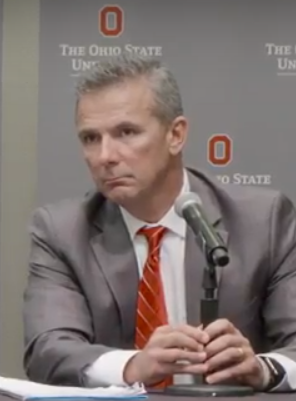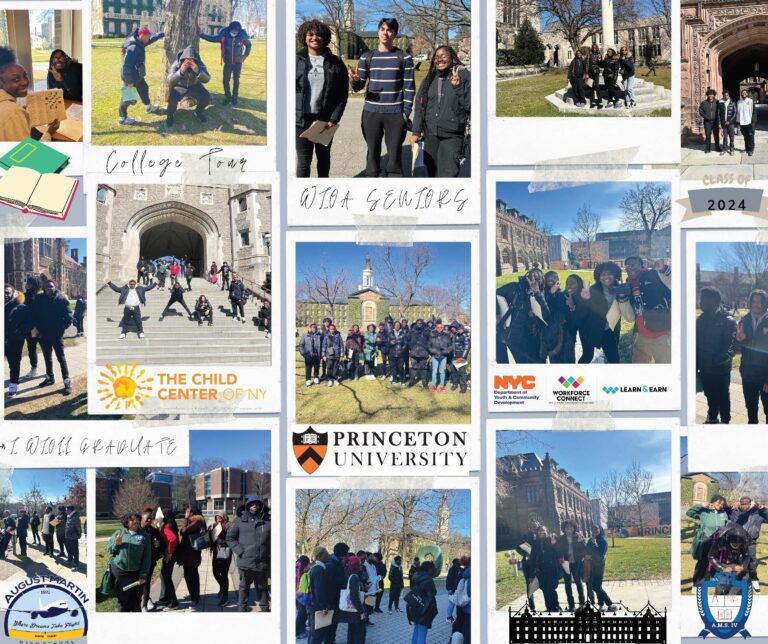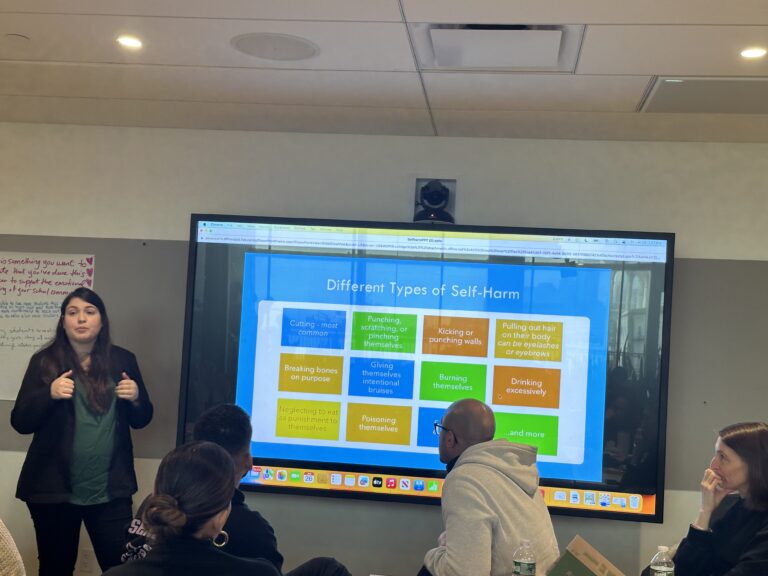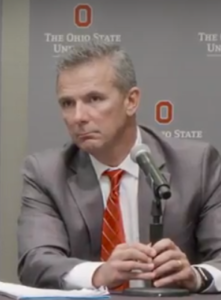 By Yolanda Vega, LMSW
By Yolanda Vega, LMSW
Associate Director, Elmhurst Family Center
At The Child Center of NY, our primary concern is always for the whole family — and how it affects the children’s overall well-being.
So when I hear about high-profile cases of domestic violence, my first thought is always how the situation affects the children: those directly involved (e.g., the abuser’s children) as well as those with no direct involvement but whose sense of the world is being formed by what they hear of it — especially from the people they love and trust.
It seems this was the last thing on the minds of anyone involved in the case of Ohio State University head football coach Urban Meyer, who, it was announced yesterday, was let off the hook with a mere three-game suspension for essentially knowing his assistant coach was a domestic abuser and doing close to nothing about it.
The assistant coach in question, Zach Smith, was fired for domestic abuse allegations last month, and an investigation by a private firm later ensued, the purpose of which was to figure out whether Urban Meyer knew about the allegations and whether or not he followed proper protocol if so. The case initially piqued my interest because my son played college baseball, and I know how invested universities are in their coaches and players — and how much the players look up to their coaches.
I became further drawn in by the coverage leading up to the investigation’s end: articles about fans marching in support of Coach Meyer and against his losing his job; op-eds regarding whether or not Coach Meyer would be fired, face suspension, or be exonerated; guessing games about what he knew and when. Almost nowhere was there a focus on the children of Coach Smith, the effect of this news on youth who hear of the case, or the young men for whom Coach Smith served as coach and mentor. When one lone (female) sportscaster spoke out to say that the domestic violence — not the possibility of Coach Meyer losing his job — is the real tragedy, her stance was noted for its being so unusual.
Yesterday, when the news of Meyer’s suspension hit the press, it got even worse, starting with Meyer’s own statement, which was truly breathtaking in its absurdity. The first paragraph of the statement apologized to Ohio State University, whom it seems Meyer considers the true innocent victim in all this. The second apologizes for his blind faith in Zach Smith. The final paragraph apologizes for basically lying about what he knew (though he says there was “no intent to mislead”) and says he really appreciates this opportunity to learn from his mistakes. Are you noticing anyone missing from this statement? When asked point-blank if he had anything to say to Courtney Smith, he replied, “My message is to everyone: I’m sorry we’re in this situation.”
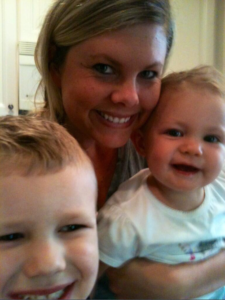
Courtney Smith and her children
What a sad cop-out, and what a sad decision by Ohio State University. Meyer gets a three-game suspension. Courtney Smith and her children will be haunted for life.
Of course, I don’t know all the facts of this particular case, but what I do know is that the effect of the coverage on ordinary children and teens is potentially troubling. When young people see families marching in support of someone accused of keeping quiet about domestic violence and the person who covered it up is let off with a slap on the wrist, it sends a very clear message: If this happens to you and you speak up, you’re on your own. I fear it makes victims — and those who suspect domestic violence is happening to friends or family — less likely to speak up, more likely to rationalize, and for the cycle to continue.
Research and experience show that children who grow up with domestic violence are more likely to normalize it. Now imagine that you are a teen in Ohio who grew up in a home with domestic violence, in which the Buckeyes are beloved. You witness everyone around you rallying in support of Coach Meyer. Most don’t even mention Courtney Smith, or if they do, it is in contemptuous terms. Then Coach Meyer is let off with a three-game suspension. Are you more or less likely to speak up about your own family situation? If you start dating someone who becomes physically abusive now and then (to start), are you likely to seek help? Or are you going to start by rationalizing it, hoping the problem will go away so you will not have to deal with whether or not to report it, and, truly, not believing it’s all that much of a problem anyway (It happened in your home; it happened to an Ohio State coach; maybe this is just the way men behave when they’re stressed or angry.)?
This is serious, because domestic violence has far-reaching effects, and it’s more prevalent than we’d like to think. For example, among mothers with children experiencing homelessness, more than 80% had experienced domestic violence. The NYC Department of Homeless Services reports that the number one reason women and children seek shelter is to flee a domestic violence situation. And in the NYC Department of Health and Mental Hygiene’s 2013 Youth Risk Behavior Survey, 10 percent of NYC high school students reported having been hit, slapped, or physically hurt on purpose by a boyfriend or girlfriend in the last year. In a city with more than a million students, this is a significant health issue, especially considering the long-term implications. As this 2014 blog post by The Child Center’s Clinical Consultation unit describes, children and teens who live in a domestic violence situation are more vulnerable to running away, abuse, and a future abusive relationship, continuing the vicious cycle.
We now know that Meyer was fully aware of Smith’s history of domestic violence allegations and decided anyway that this was the man to mentor young, impressionable Ohio State student-athletes. I think about my own son, who sometimes spent more time with his coach than with his dad, and how that relationship is also shaping his response to his future partner. Is he learning that it is OK to beat on his partner when he is under stress?
Not only did Meyer hire this man, but there is no indication he encouraged Smith or his wife to seek help or take any other action. I would worry about the mental health of any adult who hits other people; it’s a sign that something is not right and cannot be ignored. But Meyer chose to try to ignore it, and here we are.
As with most terrible issues in the news to which our children become privy, the best thing we can do is use this tragedy as a teachable moment. Talk to the young people in your life about what they thought about the coverage, and about healthy relationships in general. Invite them to share their ideas, encourage debate, and make your own views about violence in relationships clear. If it sounds daunting, this flier on 10 Tips on Talking About Healthy Relationships With Teens or this one from the U.S. Department of Health and Human Services’ Administration for Children and Families might help you get started.
Most important, model healthy relationships in your own life. If you are experiencing domestic violence — even if you aren’t sure, think it doesn’t happen often, or don’t think it’s that severe — please reach out to the National Domestic Violence Hotline at 1−800−799−7233. You can learn more about The Child Center’s individual and family counseling and prevention programs and feel free to reach out to us, too. We are here to help.
